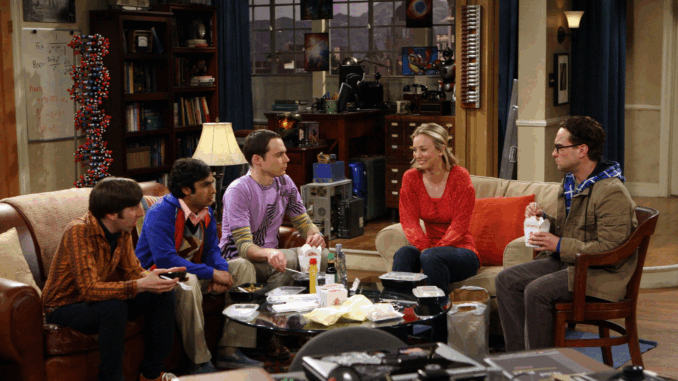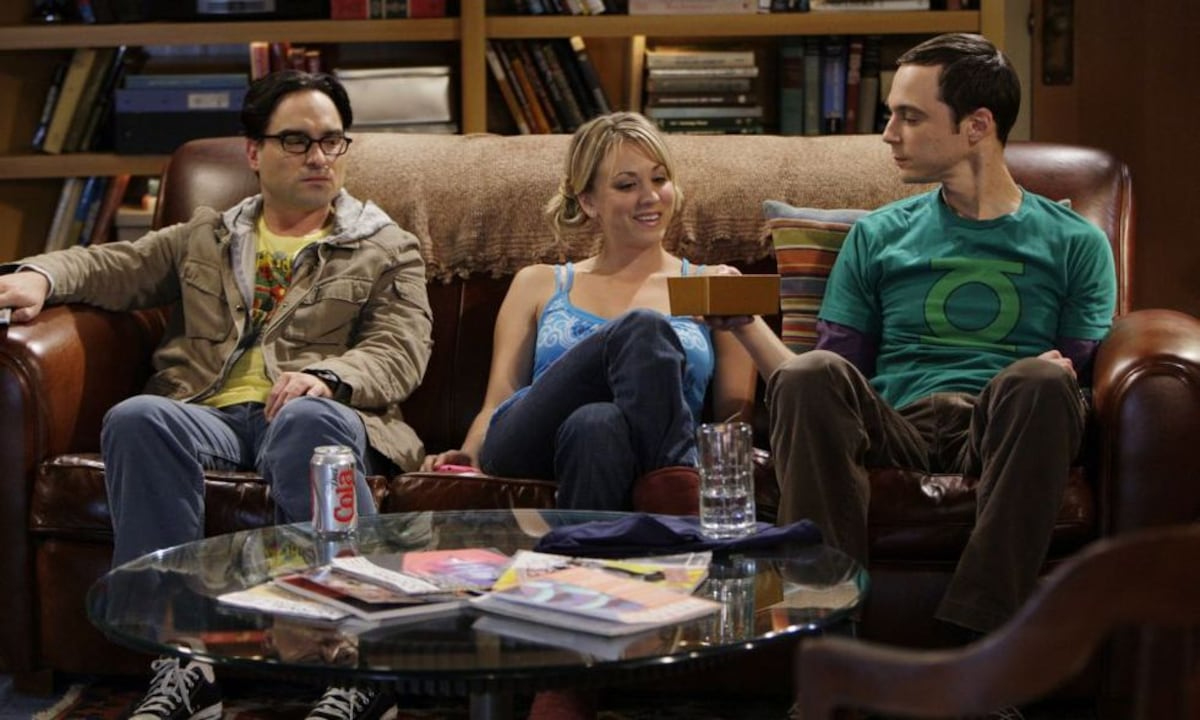
At first glance, The Big Bang Theory might seem like a sitcom built purely around physics, fandoms, and awkward romances. But buried beneath the nerdy banter and comic book debates is a surprisingly rich exploration of parental relationships—often exaggerated for laughs, yet rooted in something very real.
The show cleverly used family dynamics to flesh out characters, explore vulnerabilities, and even explain the quirks that made our favorite scientists who they are. Whether it was Sheldon’s devotion to his mother or Howard’s complicated relationship with his off-screen mom, parental figures shaped the story more than fans might realize.
Sheldon and Mary Cooper: Faith, Science, and Unconditional Love
Sheldon Cooper’s relationship with his devoutly religious mother, Mary Cooper, is one of the most heartwarming—and hilarious—parent-child dynamics on television. Mary is a classic Southern Christian mom who bakes casseroles, quotes the Bible, and prays for her “moonpie.” Sheldon, by contrast, is a hardline man of science, often dismissive of her beliefs.
And yet, despite their differences, the bond between them is remarkably strong. Mary’s unwavering support—whether she understands Sheldon or not—grounds him emotionally. In moments of crisis (such as when Sheldon is sick, afraid, or heartbroken), she’s often the only one who can truly comfort him. Their dynamic offers a touching reminder that love doesn’t require complete understanding—it just requires showing up.
Leonard and Beverly Hofstadter: A Case Study in Emotional Neglect
Where Sheldon was over-mothered, Leonard was under-mothered—painfully so. Dr. Beverly Hofstadter is a brilliant neuroscientist and psychiatrist who treats emotional intimacy like a research subject. Her cold, analytical parenting style left Leonard craving warmth and approval he rarely received.
Episodes featuring Beverly are always ripe for psychological humor, but there’s a sadness underneath. Leonard’s insecurities, his need to be loved, and his chronic anxiety stem directly from that childhood. And yet, the show never turns her into a full villain. In time, even Beverly starts to thaw—offering glimpses of affection that feel earned and meaningful.
Howard and Mrs. Wolowitz: The Loud Love of a Jewish Mother

We never see Mrs. Wolowitz’s face, but her voice echoes through every season—an unforgettable, booming presence that shaped Howard’s identity. Their relationship is frequently played for laughs: a grown man still living with his mom, constantly yelled at about his soup, underwear, and bathroom habits.
But beneath the sitcom trope lies a deep (and oddly touching) codependence. Howard’s mother is overbearing, but she clearly adores him. When she dies (off-screen, following the real-life passing of actress Carol Ann Susi), the show handles it with surprising grace. Howard’s grief is palpable, and the silence that replaces her voice becomes one of the show’s most emotionally resonant moments.
Raj and His Parents: Money, Expectations, and Rebellion
Raj’s parents—especially his controlling father—represent the pressure of tradition and success. As a wealthy Indian family, they expect Raj to marry well, act with decorum, and continue the family’s high status. Raj, however, often rebels in small but significant ways: pursuing romantic love over arranged marriage, choosing a career in science over business, and eventually trying to stand on his own financially.
While his parents often appear via video calls (and occasionally in person), their influence is constant. They’re comedic foils, but also real symbols of cultural and generational tension. Raj’s struggles to break free feel relatable to anyone who’s ever tried to chart their own course.
Penny and the Hidden Absence of Parents
Compared to the guys, Penny’s family life is largely a mystery. We meet her father, Wyatt, who clearly dotes on her—but little is said about her mother (until later seasons). Penny’s background is mostly defined by what we don’t see, which speaks volumes. Her independence, street smarts, and emotional intuition seem to come from growing up in an environment where she had to figure things out on her own.
What’s especially interesting is that Penny becomes something of a “chosen family” figure for the others—especially Sheldon. Without needing to be motherly, she becomes a source of comfort, stability, and understanding for her friends.
Amy and Bernadette: Parental Echoes and New Choices
Amy Farrah Fowler and Bernadette Rostenkowski both have unique relationships with their mothers, though we see more of Amy’s overbearing, borderline tyrannical mom. Their dynamic helps explain Amy’s early social isolation and why she clings to Sheldon with such fervor.
Bernadette, meanwhile, often references her tough upbringing and manipulative mother, though we never see her directly. What’s notable is how Bernadette often channels that maternal energy—sometimes comically—with her own husband and children. It raises a fascinating question: are we destined to parent the way we were parented?
Parenting as Quiet Character Development
While parenting is rarely the show’s main plot driver, it’s often the quiet current running beneath major developments. Sheldon’s engagement with Amy, Leonard standing up to his mom, Howard moving out, Raj cutting off his dad’s money—they all stem from childhood wounds and complicated family ties.
By the series finale, every character has grown—not just in their careers or love lives, but in how they relate to their families. They confront their upbringings, embrace change, and even begin to imagine becoming parents themselves.
Final Thoughts: More Than Just Laugh Tracks
The Big Bang Theory never marketed itself as a show about families, but in many ways, that’s what it became. Through the lens of parenthood—warm, distant, annoying, or invisible—it offered insight into what shaped these oddballs into the people we came to love.
In the end, the show teaches us that no matter how far we come in science, relationships, or geek culture, we’re all just trying to outgrow—or understand—the people who raised us.